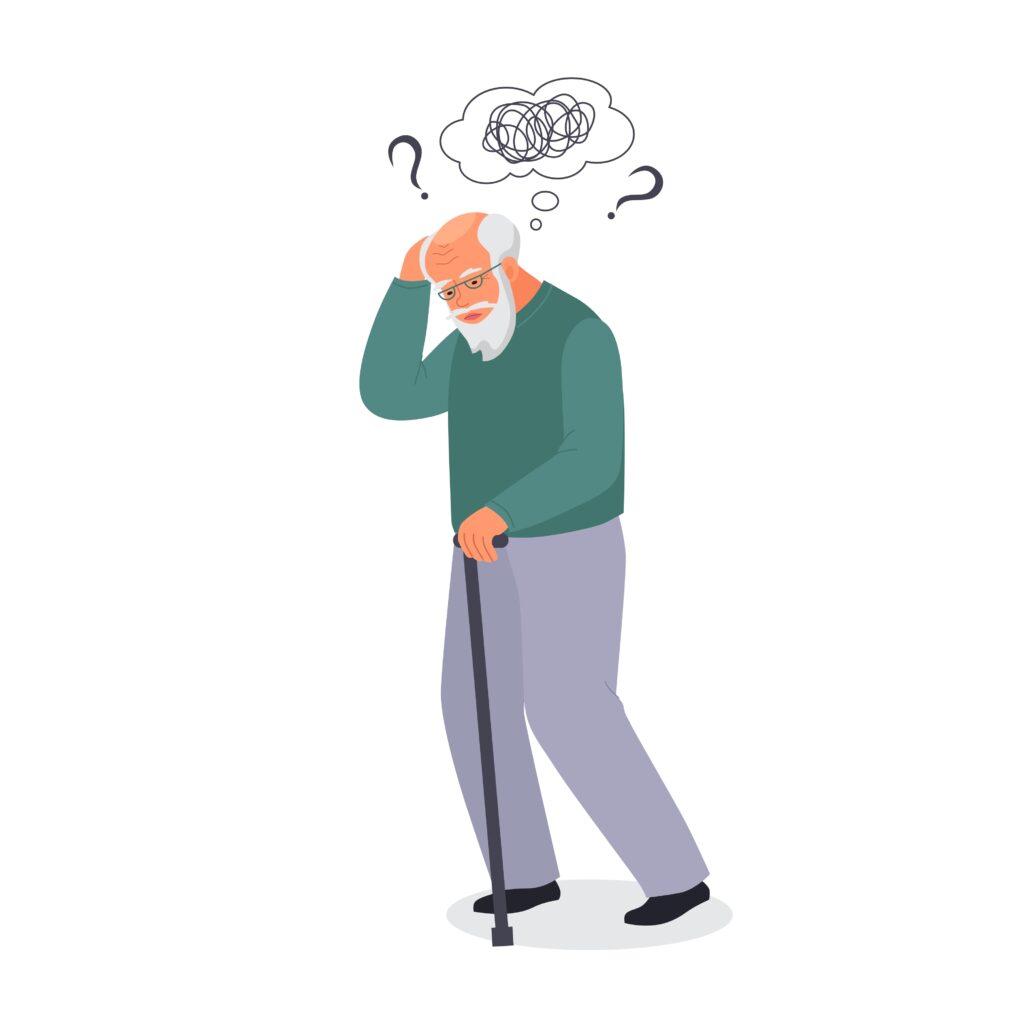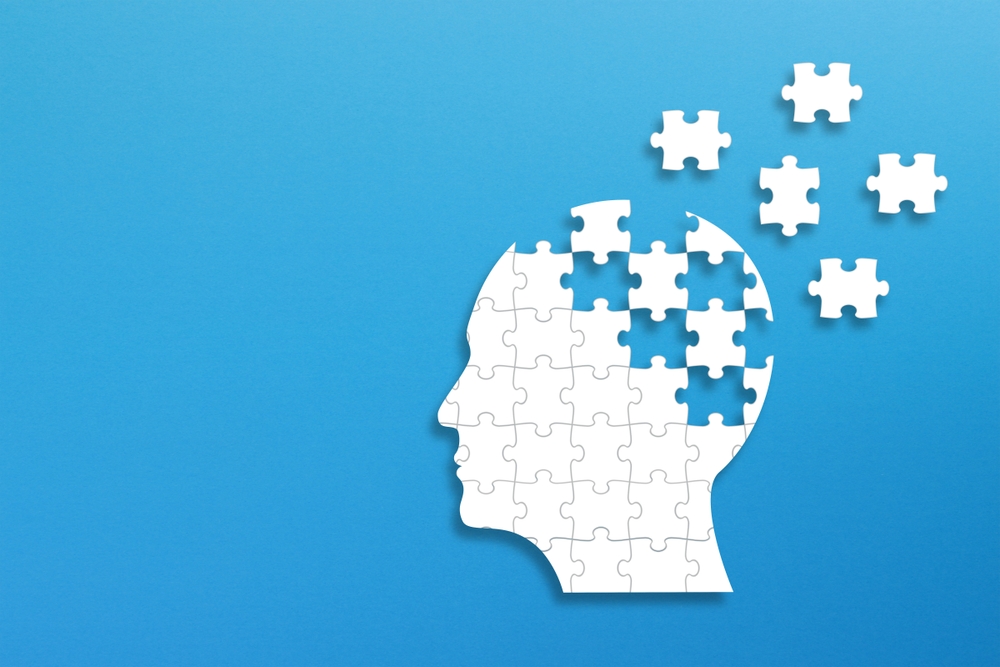It often starts small. A forgotten conversation. A recipe gone wrong. A loved one repeating the same story, or withdrawing from the ones they used to tell. These moments can feel like quirks of aging, easy to brush aside. But sometimes, they’re signs of something deeper: the earliest signals of dementia.
Dementia is an umbrella term for brain disorders that gradually erode memory, thinking, language, and behavior. Dementia affects approximately 1 in 9 people age 65 and over in the US. There are several different types of dementia; however, many can share similar early signs.
As early symptoms are often subtle or mistaken for stress, aging, or personality shifts, they can go unnoticed. Knowing what to look for is key. Here are some of the early signs, and what to do if you spot them.
Subtle Cognitive and Behavioral Changes

Memory Loss Beyond “Normal Aging”: Forgetting names or appointments occasionally is normal. But if someone starts forgetting recent conversations, repeats questions, or misplaces items and can’t retrace their steps, it may be more than just aging. These short-term memory problems are often the earliest signs of dementia.
Trouble Finding Words or Following Conversations: If a person struggles to find the right words, loses their train of thought mid-sentence, or starts using different terms for familiar objects, this could be a red flag. Language difficulties are common in many types of dementia.
Difficulty with Planning or Problem-Solving: Everyday tasks, like cooking a familiar meal or managing bills, can become confusing. Errors with numbers, misjudging time, or struggling with step-by-step tasks may signal executive dysfunction, often present in early dementia.
Read More: Managing High Blood Pressure Could Help Reduce Dementia Risk
Emotional and Psychological Changes

Increased Anxiety, Depression, or Mood Swings: People with early dementia often pull back from social situations. They may seem more anxious, irritable, or sad. These mood and behavior changes are sometimes misdiagnosed as depression alone.
Apathy or Withdrawal: Losing interest in hobbies, social events, or even conversations can be a warning sign, especially if the person was once very engaged.
Suspicion or Paranoia: Unfounded accusations (e.g., theft, cheating), or believing others are watching or plotting, can appear suddenly. These behaviors often reflect underlying cognitive changes.
Physical and Spatial Awareness Changes

Balance and Coordination Issues: People may begin to walk more slowly, shuffle their feet, lose balance, or become unsteady on stairs. You might notice frequent tripping, hesitancy when moving, or increased falls. Some individuals may also develop stiffness, tremors, or changes in posture.
Visual-Spatial Problems: Difficulty judging distances, navigating familiar routes, or interpreting visual cues (like steps or doorways) are often missed early on. Getting lost while driving or walking in known areas is a notable early sign.
Impact on Daily Life and Judgment

Decline in Hygiene and Housekeeping: Wearing the same clothes for days, forgetting to bathe, or allowing the home to become cluttered can point to a loss of routine. These signs are often the first that families notice.
Poor Judgment or Risky Behavior: Falling for scams, giving away large amounts of money, or acting odd in social settings are warning signs. As decision-making declines, impulsivity and poor judgment often emerge.
Read More: 9 Early Signs of Dementia You Could Be Overlooking
What to Do Next if You Notice Signs of Dementia

Noticing changes in yourself or a loved one can be confusing and even scary. It’s normal to feel unsure about how to bring it up or what steps to take next. However, these changes are important health signals that deserve attention.
The best thing you can do is seek a thorough evaluation from a doctor, who can:
- Check for treatable causes through physical exams and blood tests.
- Review medical and family history.
- Perform cognitive and neurological assessments.
- Use brain scans (CT, MRI, PET) to identify brain changes.
- Consider psychiatric evaluation if mood or behavior changes occur.
- In some cases, recommend genetic or spinal fluid tests.
Early diagnosis helps manage symptoms, rule out other conditions, and plan ahead.
Potential Causes of Dementia

Dementia has no single known cause, but rather results from a combination of genetic, lifestyle, and environmental factors. Certain genes are linked to early-onset forms, but most cases, including types like frontotemporal dementia, lack clear genetic explanations.
Lifestyle factors such as obesity, high blood pressure, smoking, diabetes, physical inactivity, social isolation, and lack of mental stimulation are all associated with increased risk. Environmental exposures, like air pollution and toxins, may also contribute, though they are harder to avoid. Age remains the strongest overall risk factor, as dementia typically occurs later in life.
Treatment Options

Dementia has no cure, but symptoms can be managed with medications and therapies. Common drugs like cholinesterase inhibitors and memantine may temporarily improve memory and thinking, while newer treatments like lecanemab and donanemab can slow early Alzheimer’s progression but carry risks such as brain swelling and bleeding.
Therapies focus on improving safety, daily functioning, and behavior, including occupational therapy and simplifying tasks. Lifestyle changes, like regular exercise, mental engagement, and good sleep routines, also help ease symptoms.
Early Awareness, Better Outcomes.

Dementia doesn’t usually begin with major memory loss; it starts with small, gradual changes in thinking, mood, language, or behavior. These early signs can be subtle and easy to miss.
But catching them early matters. Early identification allows for more accurate diagnosis, better symptom management, and access to resources and treatments that can slow progression and improve quality of life. If something feels off, don’t wait. Paying attention to the early signs is one of the most powerful steps you can take.
Disclaimer: This information is not intended to be a substitute for professional medical advice, diagnosis or treatment and is for information only. Always seek the advice of your physician or another qualified health provider with any questions about your medical condition and/or current medication. Do not disregard professional medical advice or delay seeking advice or treatment because of something you have read here.
Read More: 9 Early Signs of Dementia You Could Be Overlooking
